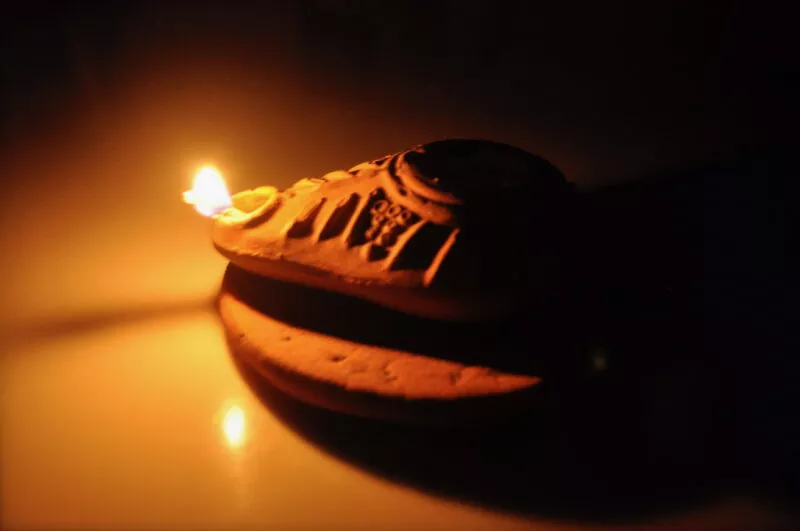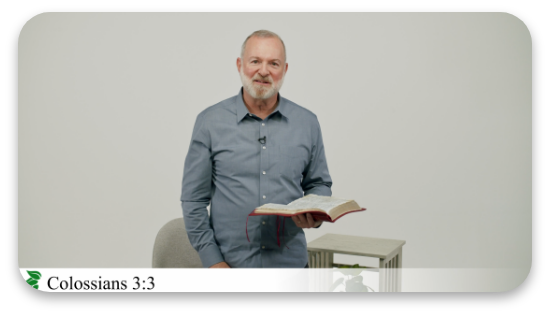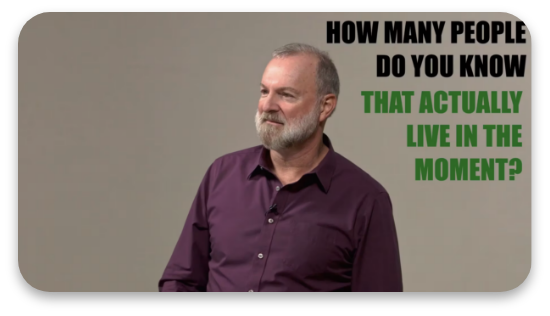Living in Love at Home
I have cared for a widow for the past 23 years. She’s my wife’s mother. I call her “Mum”.
I was not an orphan — not fatherless or motherless. In fact, I had the most wonderful parents I believe anyone could have ever had. So wonderful in fact, that my mom was fine with my decision to call my mother-in-law “Mum” when she first came to live with us. It was my way of showing both love and respect to our newly welcomed household member.
Before we get into today’s topic, though, I have a question for you: What do Boaz, Lazarus, Stephen, Philip the evangelist, and Dorcas all have in common?
If you answered, “They all cared for widows”, you are correct.
We will look at each of these individuals in our quest to understand what it takes to wholeheartedly care for widows.
As a kinsman redeemer, Boaz redeemed two widows:
- The elder widow, Naomi, and
- The younger widow, Ruth
Lazarus took on the responsibility to care for Mary when the dying Christ, on the cross, entrusted her to him
Stephen and Philip were part of the seven, who were given the duty to oversee the daily distribution to the widows that had been entrusted to the care of the church in Jerusalem
Dorcas ministered to the widows in Joppa
Caring for widows is a big deal in God’s heart.
The responsibility to care for widows was first set forth in the Book of Deuteronomy, where Israel was taught to love God and to love their neighbor.
Deuteronomy 10:18-19 [ESV]:
He executes justice for the fatherless and the widow, and loves the sojourner, giving him food and clothing.
Love the sojourner, therefore, for you were sojourners in the land of Egypt.
Bullinger cites these verses as an example of the figure synecdoche, where a part (the widows, the fatherless, and the sojourner) is put for the whole (all the afflicted). This makes sense when you think about it.
Widows are a part of a larger class of those who have lost a spouse, including widowers.
The fatherless are part of a larger class of orphans, including the motherless.
The sojourners are part of a larger class of the lonely, those without a place to call home or people they can call family.
Surely God would have us love and care for all of these individuals in their hour of need, wouldn’t He?
That being said, our focus in this teaching will be on widows (and, by extension, widowers).
What is a widow? The Hebrew term almanah indicates being “unable to speak.” A widow is someone who has lost an advocate in society. She may have had a husband or a child, but now she finds herself alone and struggling to find her new place. She’s someone who could use a boost, someone in need of some TLC. And in addition to that, she may be someone with some financial needs to boot.
So how do you care for such a person?
BOAZ, NAOMI AND RUTH
In the culture of the Bible, God made provision for the young widows to remarry and raise a family by establishing the practice of the kinsman redeemer.
Deuteronomy 25:5-6:
If brothers dwell together, and one of them dies and has no son, the wife of the dead man shall not be married outside the family to a stranger. Her husband’s brother shall go in to her and take her as his wife and perform the duty of a husband’s brother to her.
And the first son whom she bears shall succeed to the name of his dead brother, that his name may not be blotted out of Israel.
Boaz became the kinsman redeemer for the young widow Ruth.
Ruth 4:10, 13:
Also Ruth the Moabite, the widow of Mahlon, I have bought to be my wife, to perpetuate the name of the dead in his inheritance, that the name of the dead may not be cut off from among his brothers and from the gate of his native place. You are witnesses this day.
So Boaz took Ruth, and she became his wife. And he went in to her, and the Lord gave her conception, and she bore a son.
By deciding to redeem Ruth, Boaz also took responsibility for the care of the older widow in the family — her mother-in-law Naomi, his blood relative. This is evident in what the women said to Naomi, who called him a “restorer of life and a nourisher of your old age.”
Ruth 4:14-16:
Then the women said to Naomi, “Blessed be the Lord, who has not left you this day without a redeemer, and may his name be renowned in Israel!
He shall be to you a restorer of life and a nourisher of your old age, for your daughter-in-law who loves you, who is more to you than seven sons, has given birth to him.”
Then Naomi took the child and laid him on her lap and became his nurse.
Naomi was clearly not just some sidekick in this endeavor. She had the privilege of having a pivotal role in the nurture and development of Ruth’s and Boaz’s son Obed — who grew up to become the grandfather of David.
So God takes care for widows at any age, be they young or old.
LAZARUS AND MARY
No one ever loved and cared for his mother any more than did the Lord Jesus Christ his mother Mary. And yet, the nature of his duty to redeem mankind put a certain distance in their relationship that no ordinary mother and son would have to navigate. He would care for her in her widowhood, not by staying alive and on earth to take responsibility for her, but by becoming her lord and savior following her new birth on the day of Pentecost. What an amazing Redeemer!
As the eldest in his family, Jesus Christ was responsible for the care of his widowed mother. The exchange on the cross between the Lord and the disciple whom he loved making sure this would be taken care of after his departure is most poignant.
John 19:26-27:
When Jesus saw his mother and the disciple whom he loved standing nearby, he said to his mother, “Woman, behold, your son!”
Then he said to the disciple, “Behold, your mother!” And from that hour the disciple took her to his own home.
Lazarus is the only man in the Gospels of whom it is explicitly stated that Jesus loved him.
John 11:5:
Now Jesus loved Martha and her sister and Lazarus.
For this reason, Lazarus must be the “son” who is mentioned in John 19:26-27.
In these two short verses, much can be learned as to how truly Jesus cared for and made provision for his mother.
Jesus drives home the point by telling Mary “Behold, your son” and by telling Lazarus “Behold, your mother.” Notice that he calls Mary “woman” — a term of respect — rather than “mother” in order to help both Lazarus and Mary come to grips with the fact that he would indeed have to take on the role of a son to her from now on.
Jesus had four brothers — James, Judas, Simon and Joseph — and at least three sisters. Why did he not entrust his mother to one of them? Perhaps because they had not yet believed.
We know from Acts 1 that Mary and the Lord’s brothers were gathered with the disciples in the days before Pentecost, but what about before that? Did Jesus’s siblings believe during the Gospel period?
We cannot know for sure, but we do know from 1 Corinthians 15 that it was only afterthe resurrection that Jesus appeared to his brother James in his new body — and surely that was a turning point, not just for James, but for all Jesus’s siblings.
In any case, it was surely revelation that Lazarus was “the man” to care for Mary after Jesus’s death on the cross.
It would have been a blessing for Mary to be with Lazarus for a number of reasons:
As the disciple whom Jesus loved, he was undoubtedly an individual of great love and compassion himself.
His sisters Mary and Martha were also wonderful disciples, much loved of the Lord, and could be daytime female companions to his mother.
In the days before the resurrection, Lazarus stood as living proof to Mary that God raises the dead.
Lazarus and his sisters lived in Bethany, which is the spot from which Christ would ascend some fifty days later.
Taking these factors into account, there is no question that Jesus Christ did his utmost for God’s highest with regard to his mother’s care after his approaching death.
STEPHEN, PHILIP AND THE WIDOWED SAINTS AT JERUSALEM
Have you ever stopped to think of what triggered the commissioning of the seven in Acts 6 — the first such named group of leaders mentioned in the church since the calling of the twelve?
You guessed it, it was the care of the widows! God must think it’s pretty important for us to take care of this duty.
Acts 6:1-3:
Now in these days when the disciples were increasing in number, a complaint by the Hellenists arose against the Hebrews because their widows were being neglected in the daily distribution.
And the twelve summoned the full number of the disciples and said, “It is not right that we should give up preaching the word of God to serve tables.
Therefore, brothers, pick out from among you seven men of good repute, full of the Spirit and of wisdom, whom we will appoint to this duty.
Notice who got the job: “seven men.” That’s not to say that women had no involvement. But as in the other instances we’ve seen thus far, the men needed to be at the forefront of taking care of the widows. What had the widows lost, anyway? Their men! So it was first the men in the church who were to step in to advocate, provide for and lovingly care for the needs of the widows.
And who were the men tasked to fulfill this job? They are described as:
“of good repute” (v.3)
“full of the Spirit and of wisdom” (v. 3)
“full of faith of and of the Holy Spirit” (v. 5)
In other words, slackers need not apply! God wasn’t messing around with this job description. Only the best for God’s widows!
And what was the result when they got it right?
Acts 6:7:
And the word of God continued to increase, and the number of the disciples multiplied greatly in Jerusalem, and a great many of the priests became obedient to the faith.
DORCAS AND THE WIDOWS OF JOPPA
Like Stephen and Philip, Dorcas was a Greek-speaking Judean — the first named female Grecian, in fact, mentioned in the New Testament. And, like Stephen and Philip, she had an outsized impact because of the enormity of her great, big, wonderful heart.
Acts 6:36-42:
Now there was in Joppa a disciple named Tabitha, which, translated, means Dorcas. She was full of good works and acts of charity.
In those days she became ill and died, and when they had washed her, they laid her in an upper room.
Since Lydda was near Joppa, the disciples, hearing that Peter was there, sent two men to him, urging him, “Please come to us without delay.”
So Peter rose and went with them. And when he arrived, they took him to the upper room. All the widows stood beside him weeping and showing tunics and other garments that Dorcas made while she was with them.
But Peter put them all outside, and knelt down and prayed; and turning to the body he said, “Tabitha, arise.” And she opened her eyes, and when she saw Peter she sat up.
And he gave her his hand and raised her up. Then, calling the saints and widows, he presented her alive.
And it became known throughout all Joppa, and many believed in the Lord.
Was Dorcas herself a widow? Scripture does not tell us. But it is indisputable that she was greatly loved by the widows with whom she kept company and for whom she was a great example.
CARING FOR THE WIDOWED TODAY
It would be impossible for me to share all that has transpired since we first decided to invite Mum to stay with us; but I thought it would be worthwhile to share some of our personal experiences just to give you a little window into what it’s like to share a roof and share hearts with a believing parent over many years.
When Marilyn’s dad fell asleep in 1993, we were concerned about Mum living on her own halfway around the world in Malaysia. With no siblings to care for her there, her closest relatives who might have taken her in would have been her brothers and sisters, many of whom were scattered around the world in various countries.
God was the one who put it on my heart to make a decision. “Honey,” I said, “I really think we need to get your Mum to come and live with us.” And that was that; we were both agreed. Of course, we had to convince Mum that we really wanted her; but that finally worked out as well when we told her she was free to just come on a visit initially and then see how things went. It took three years for all the paperwork to go through with the Immigration and Naturalization Service, but finally in 1996 we were able to welcome Mum into our home with our 9-year-old and 12-year-old daughters. It has since proved to be one of the most momentous decisions of our lives.
There were no conditions when we extended the invitation to Mum to stay with us. We didn’t expect her to become actively involved in our fellowship because it wasn’t a condition of her sharing our home. In fact, we actively discouraged her from doing so for the first few months until it became evident that that was her true desire.
When the time came when our daughters had grown up and left home, Mum wondered if she had perhaps fulfilled her purpose living with us. We assured her that that wasn’t the case; that the reason she was here was simply because she was our family, because she was our mum. Today we have actually spent more of our married life sharing a home with Mum than the years before that — and we are by far the richer for it.
Here are just a few of the benefits we’ve experienced having our mom live with us:
- Impact of her prayers on our family and fellowship
- The learning and exposure for our kids growing up, sharing the whole house together
- Bonding with her grandkids and great-grandkids
- Her witness in the neighborhood (telling everyone about the Word and about fellowship)
- Her believing for a healthy body and a sound mind (now 92)
- Her unreserved giving from the small reserves she has here
- Her attitude of thankfulness for the Word
- Her daily contributions where she’s able — sweeping, cooking, sewing
- Serving as “everybody’s grandma”
- Her connecting us to the wider family around the world/to the family history
- Her patience — taking time out to live at a slower pace
- The value of conversation and of speaking the Word to each other
- Her example of simplicity in having her need met — doesn’t need the latest in material things
- Her forgiveness for us in the day-to-day affairs of our life together
- Now that I’m retired, her companionship during the day
One thing to remember about the widow’s care is that it’s a two-way street: you care for the widow, but the widow also cares for you. And isn’t that just the way that God intended?






